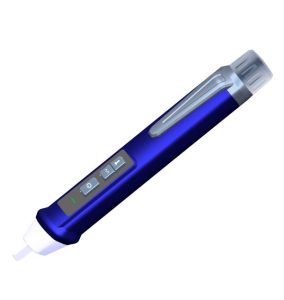Exploring The Accuracy of Digital Meter Measurement Testers
Home » Exploring The Accuracy of Digital Meter Measurement Testers
RECENT POSTS
Share:
- September 4, 2024
Table of Contents
Digital meter measurement testers have become an essential tool in various industries, providing precise and reliable measurements. Whether you’re an electrician, engineer, or hobbyist, understanding the accuracy of these devices is crucial.
Digital meters are used to measure voltage, current, resistance, and other electrical parameters with a high degree of precision. But how accurate are they? This article explores the accuracy of digital meter measurement testers and how they stand up to traditional analog meters.

How Digital Meter Measurement Testers Work
Digital meters convert analog signals into digital form through an analog-to-digital converter (ADC). The ADC interprets the incoming signal and converts it into a readable digital display. This process allows for more precise readings than analog meters, which rely on a moving needle and are subject to human error.
Factors Affecting Accuracy
- Resolution: The higher the resolution of the digital meter measurement, the more precise the measurement. Resolution refers to the smallest change in measurement that the meter can detect.
- Calibration: Proper calibration is essential for maintaining accuracy. Digital meters should be calibrated regularly to ensure they provide correct readings.
- Temperature: Extreme temperatures can affect the performance of digital meters. Operating the device within the recommended temperature range is vital for accurate measurements.
- Battery Life: A low battery can lead to inaccurate readings. It’s important to ensure that the battery is fully charged before using a digital meter.
Comparing Digital and Analog Meters
One of the most significant advantages of digital meter measurement testers over analog meters is their accuracy. Digital meters provide a more precise reading, with less chance of human error. Analog meters, while still useful in some applications, are more prone to inaccuracies due to their reliance on a moving needle and the user’s ability to read the scale correctly.
Advantages of Digital Meter Measurement Testers
Precision: Digital meters provide accurate measurements, making them ideal for detailed work in electrical engineering and other fields.
Ease of Use: The digital display is easy to read, reducing the likelihood of errors.
Versatility: Many digital meter measurement testers come with multiple functions, allowing users to measure various parameters such as voltage, current, resistance, and capacitance.
Durability: Digital meters are often more robust and resistant to damage compared to their analog counterparts.
Common Applications for Digital Meters
Digital meter measurement testers are used in various applications:
- Electricians use digital meters to ensure that wiring and connections are correct and safe.
- Mechanics rely on digital meters to diagnose electrical issues in vehicles.
- In manufacturing settings, digital meters are used to test the electrical components of products during quality control processes.
- People often use digital meters in home projects to measure electrical parameters accurately.
Conclusion
Digital meter measurement testers have revolutionized how we measure electrical parameters, offering unparalleled accuracy and ease of use. Understanding the factors that influence their accuracy and how to maintain them ensures that these devices continue to provide reliable measurements.
Whether for professional or personal use, digital meters are a valuable tool in any technician’s or hobbyist’s toolkit. By following best practices for calibration, operation, and maintenance, you can trust the readings your digital meter provides, ensuring the success and safety of your projects.
0

